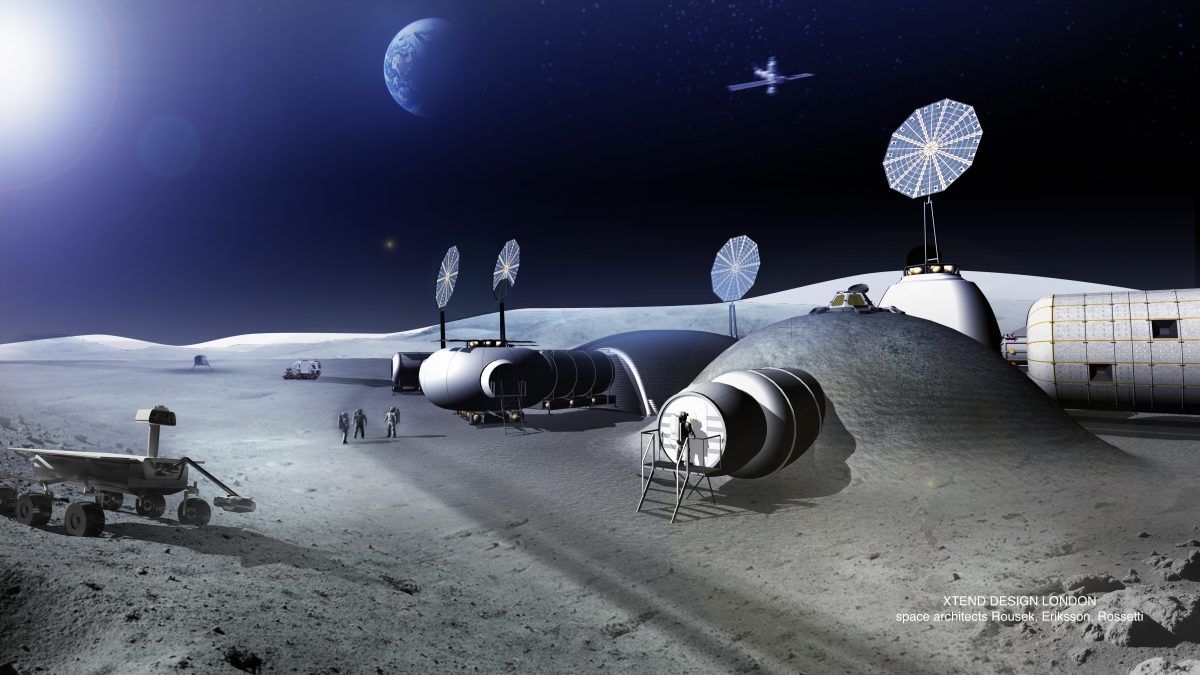Product endorsements and spaceships with corporate brands just might be part of a trend toward further commercialization of America’s space effort.
Get the latest international news and world events from around the world.

Moon Village Association: Going to the Moon with cooperation from the private sector
Many countries including China, Russia, South Korea, India, Japan, and Europe Nations have all outlined significant lunar plans. To mention a few, the Moon Village concept got an endorsement from the Secretary General of the China National Space Administration, Yulong Tian. He outlined plans for a series of robotic missions to the moon, including China’s first sample return mission, Chang-e. The Director General of the Russian state space corporation, Roscosmos, talked about participating in any Moon Village effort. Smaller space agencies, such as Ukraine, share a similar desire to carry out lunar missions. President Trump signed the Space Policy Directive-1 in December 2017 and NASA has big plans for the Moon, with the recent Lunar Orbital Platform-Gateway (LOP-G) initiative. Space activities are not limited to government initiatives; many of them are being pursued in partnership with civil society and the private sector. Several private missions to the Moon are planned in Japan with ispace, India with Team Indus, Israel with SpaceIL, United States with companies such as OffWorld and Moon Express, Germany with PT Scientists, and Luxembourg with CisLunar Industries.
Private industry is developing business plans to profit by creating new services and products that eventually will become the Moon Market. There is already good cooperation between private and government industries in each country; however, there is no global platform allowing cooperation between industry and government around the world. There is also a need to engage non-space industries by communicating the potential of the Moon Market. The Moon Village Association (MVA), a non-governmental organization (NGO) created in 2017 and based in Vienna, is dedicated to this mission:
“It provides a forum for the development of the Moon Village for industry, government, space agencies, international organizations, NGOs and the public at large.”


Physicists Just Made the Most Precise Measurement Ever of Gravity’s Strength
Gravity might feel strong if you drop a bowling ball on your feet, but is in fact the weakest force. Compare it to electromagnetism: the pull of all the Earth’s gravity can’t stop you from picking up a paperclip with a refrigerator magnet. That weakness makes gravity incredibly difficult to measure.
A team of scientists in China are reporting that they have now performed the most precise measurement of gravity’s strength yet by measuring G, the Newtonian or universal gravitational constant. G relates the gravitational attraction between two objects to their masses and the distance between them. The new measurement is important both for high-powered atomic clocks as well as the study of the universe, earth science, or any kind of science that relies on gravity in some way.

Scientists identify protein that may have existed when life began
How did life arise on Earth? Rutgers researchers have found among the first and perhaps only hard evidence that simple protein catalysts—essential for cells, the building blocks of life, to function—may have existed when life began.
Their study of a primordial peptide, or short protein, is published in the Journal of the American Chemical Society.
In the late 1980s and early 1990s, the chemist Günter Wächtershäuser postulated that life began on iron- and sulfur-containing rocks in the ocean. Wächtershäuser and others predicted that short peptides would have bound metals and served as catalysts of life-producing chemistry, according to study co-author Vikas Nanda, an associate professor at Rutgers’ Robert Wood Johnson Medical School.
Our Deepest Fear
Film has always had a special place in my heart. It’s helped me through so many stages in my life.
I’ve felt so unmotivated these past few years and decided to work on something that would inspire me.
So, if you feel unmotivated right now or just seem like you’re stuck, I hope this video helps you in some way.
Thanks for watching!
Music: https://audiojungle.net/item/to-the-stars/22166613?s_rank=36
For business inquiries: [email protected]
Step aboard the Space Shuttle Discovery with Google’s 8K virtual tour
Check out the spacecraft in a 360-degree video.



Small leak discovered on Russian side of International Space Station, NASA says
Small leak discovered on Russian side of International Space Station, NASA says originally appeared on abcnews.go.com
A small pressure leak was discovered on the International Space Station, according to NASA.
Flight controllers at mission control centers in Houston and Moscow began seeing signs of the leak Wednesday night when the six-member crew aboard the orbital outpost were asleep. Flight controllers monitored the situation until the crew awakened at their normal time Thursday morning since they were in “no danger,” NASA said in a press release.